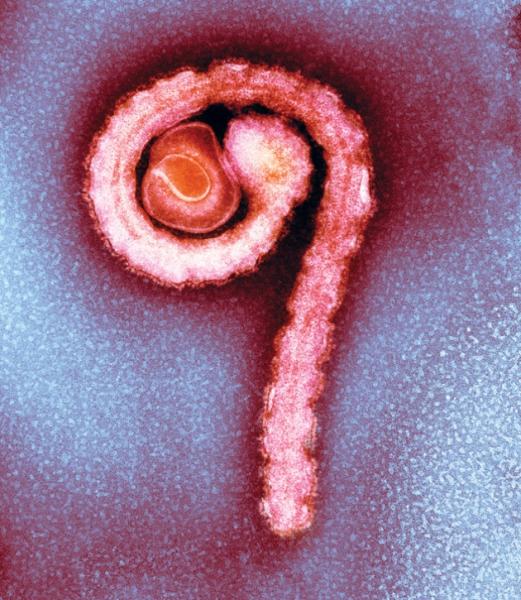Scientists know a lot about the virus that causes Ebola — but there are many puzzles that they have yet to solve.
NATURE SCIENCE International Weekly Journal of Science Oct. 29, 2014
Scientists know a lot about the virus that causes Ebola — but there are many puzzles that they have yet to solve.

An Ebola virus particle from the 2014 outbreak.
To much of the world, the virus behind the devastating Ebola outbreak in Africa seems to have stormed out of nowhere. But Leslie Lobel thinks we should have seen it coming.
In 2012, Lobel and a team of researchers spent six months in Uganda studying the Ebola virus and related viruses. Over the course of their stay, these pathogens caused at least four separate outbreaks of disease in central Africa, affecting more than 100 people. To Lobel, a virologist at Ben-Gurion University of the Negev in Beer-Sheva, Israel, the outbreaks felt like the small tremors that can precede a major earthquake. “We all said, something is going on here; something big is going to happen,” he says.
Recent Comments